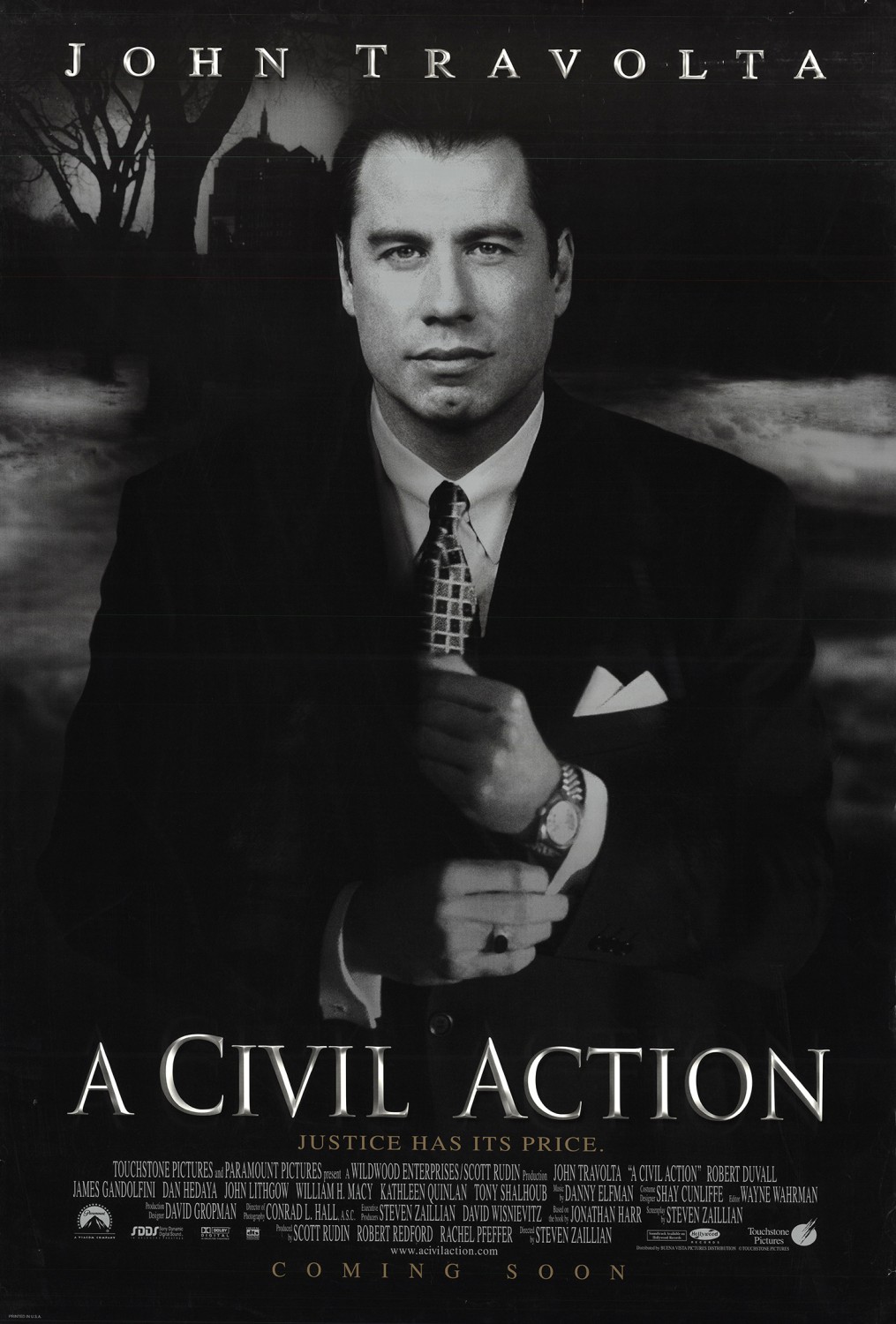“A Civil Action” was released in 1998, directed by Steven Zaillian (Schindler’s List, Money Ball), and stars John Travolta, Robert Duvall, William H. Macy, Tony Shalhoub, John Lithgow, James Gandolfini, and has an appearance by world renowned comedian Stephen Fry. The plot follows a hot shot lawyer (John Travolta) fresh off a case in which he was able to secure a settlement of $2 million dollars for his client. He’s then doing a victory lap / advertisement on a local radio program when he’s ambushed by a woman that says she’s his client but he’s done no work for her and she wants him to come up to her city to explain why. Turns out that one of his partners had taken on a case from a group of people in a small town, but ignored them in favor for cases that made the firm money. The group had suffered several leukemia deaths, they were suspicious that the water from their wells was causing the deaths due to possible contamination from local businesses, and wanted help getting to the bottom of the situation, and if possible security an apology. The group is told that there isn’t much that can be done, because they’ve not present any “deep pockets” for the law firm to go after, but after a classic Hollywood moment, Travolta’s character has the first of several epiphany moments in which he puts pieces together to forward the story.
After he puts together an official complain the case immediately goes to trial, an interesting turn events that skips right over any alternative methods like arbitration or mediation, moving right to a jury trial. During the trial there’s several moments of judiciary intrigue in which the judge (John Lithgow) seemingly sides with the defendants several times, even going so far as asking for a summary decision from the jury on if the case itself should move forward. The scientific specifics are left for montages and are quickly moved past, a shame because it’s the science that the entire case seems to rest on. After nearly an hour and a half of film, we finally get a decision on the case, which is to say that it’s settled out of court for far less than they should have settled and none of the families that originally brought the complain are happy with the results. There’s no apology, there’s a limited financial settlement, and no one is required to clean up the dumped chemicals. In what feels like an after thought, it’s discovered that there were some shenanigans afoot, some lies to the EPA, and a new case was brought by the federal government, resulting in the closure of the offending businesses and a clean up of the affected areas.
Throughout the film Travolta’s character is poised to be a classic “hot shot learns his lesson about what’s really important in life” character which he does do, but only after financially ruining his firm, losing his home, and putting himself into considerable debt. On a technical level this is a well made film with some exceptionally well done camera angles (particularly when Travolta first finds the chemicals in the first act), with well it scenes, and a sound mix that worked well for the locations and topics highlighted throughout the movie. The acting on Travolta’s part was on brand for him, with a slightly over the top attitude about his character, but the rest of the cast performed their roles exceptionally, I particularly thought William H Macy did well as an exasperated financial-man who was at his limit with the case’s expenditures.
As for the legal aspects of the film, this is very much a Hollywood movie with the actual legal matters being glossed over or ignored for the more dynamic and entertaining “man on a mission” style story that really is fun to watch, but ends up lacking substance. The courtroom drama that we did see was largely in montage form, with some backroom confrontations that were entertaining, but not likely realistic.








Notice the length? I submitted this to a class for 10 extra points. I got all 10!